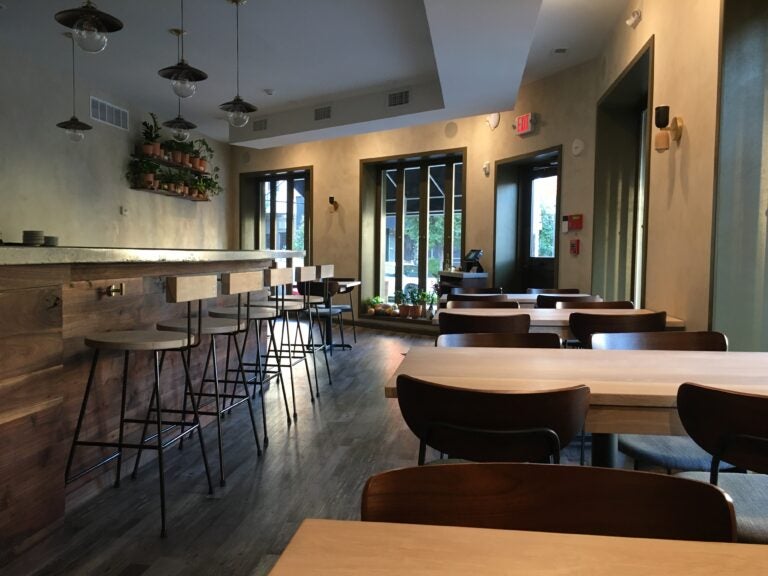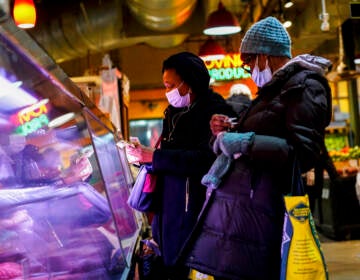Small businesses, insurers clash over COVID claims
Many insurance policies exclude viral outbreaks like COVID-19. But if governments ordered businesses to shut down, should insurance companies still have to pay?
Listen 15:33
Tables are empty at River Twice restaurant in Philadelphia. (Provided by River Twice)
In Philadelphia alone, dozens of businesses have filed lawsuits against insurance companies — some even before their claims have been denied — as they seek coverage for business losses during the COVID-19 shutdowns.
The Philadelphia Inquirer’s Jeremy Roebuck explains how another coronavirus outbreak impacted today’s disputes between small businesses and insurers, and how some state legislators are trying to compel companies to pay out claims. He reported this story with the Inquirer’s Catherine Dunn.

Hear the whole story on The Why
Interview highlights
On why businesses are suing — even before their claims are denied
Just in Philadelphia, we’ve already seen dozens of lawsuits that have been filed by restaurants, gyms, medical practices, hotels, sporting arenas. Lawyers are anticipating a flood of these lawsuits as insurance companies start denying claims. And a lot of the cases right now, the businesses are filing suit even before they’ve had a chance to get a denial from from their insurance company because they’re just so scared. They want to be assured that they’re going to get some money off of these premiums that they’ve been paying for month after month.
I think what the businesses and their lawyers are looking for is a blanket kind of ruling from a judge that says, “Before we get into the nitty gritty of each business’ insurance policies, insurance should cover these types of losses as a whole for all types of businesses. And then we can argue about specifics of each individual business’ policy.”
How the SARS virus affected business insurance policies in the early 2000’s
Another coronavirus was running rampant throughout throughout parts of Asia. A lot of the insurance companies started suddenly saying, “Oh, wait, we’re going to have to pay out huge amounts of money to businesses that are shut down for closure similar to [what’s] happening over there.” And so they started writing these virus exclusions into a lot of these business interruption policies. And that’s now become standard. And basically what that means is the insurance companies are saying, “We’re not going to pay for viral outbreaks or losses that might be incurred as a result of viral outbreaks.”
While the viral outbreak exclusions are standard, they’re not necessarily in every single policy. So you have some restaurants that are saying, “We don’t have a viral outbreak exclusion in our policy, so you need to pay us.” But in those cases where there is that exclusion, the restaurants are also arguing that it wasn’t the virus that caused us to shut down our restaurant. It was the governments that issued stay-at-home orders or ordered the closure of nonessential businesses. And it was that government action that caused our our revenue to drop off. Not the virus itself.
What’s the insurers’ argument?
They’re raising alarm about the fact that if they’re forced to make these payments to businesses all over the country because wide swaths of the country have been shut down for months, they could be looking at having to cover losses that range anywhere from $115 to $383 billion dollars a month — just for the small business sector. Now, the way the insurance industry works is they’ve got kind of a giant pool of $800 billion in cash reserves that they kind of have at any one moment that they pull from to pay out on claims. You hear from a lot of insurers that if they’re forced to pay out these claims, by and large, it could bankrupt the industry. And that could not only affect restaurants and businesses with business interruption insurance, but it will also affect people trying to file claims on auto insurance, homeowner’s insurance, because the money that they’re all pulling from is suddenly gone.
WHYY is your source for fact-based, in-depth journalism and information. As a nonprofit organization, we rely on financial support from readers like you. Please give today.






